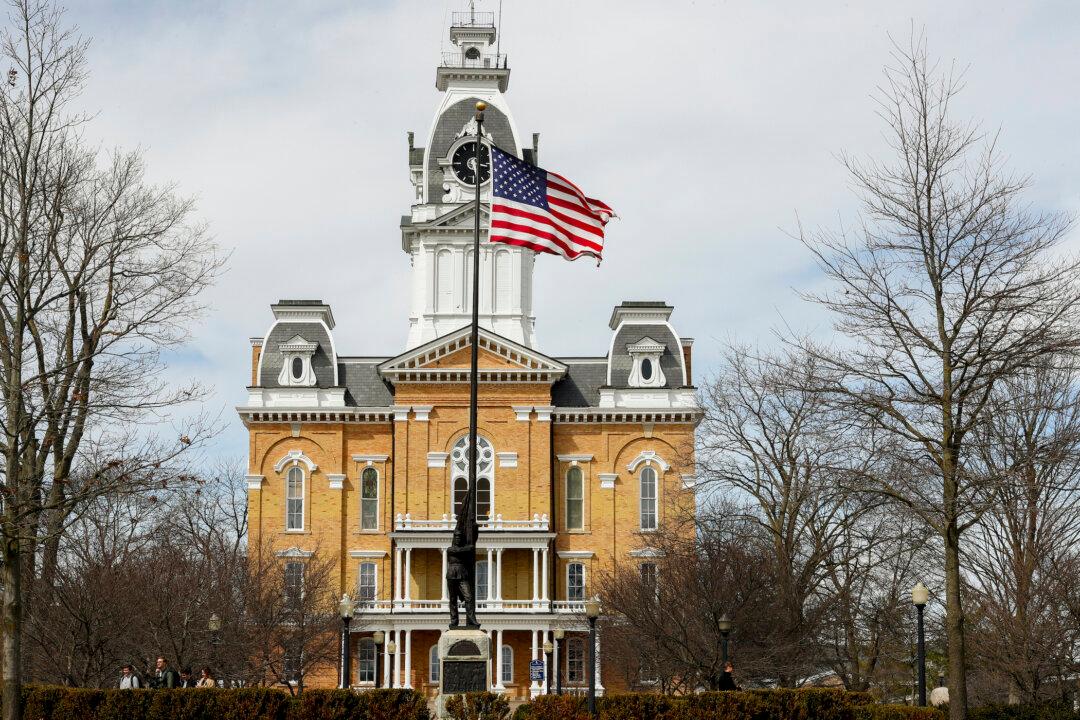WASHINGTON—The afternoon of April 18, Good Friday, was warm and sunny in Washington—a clean, dry interlude before swampy weather settles in.
On the streets of the Mount Pleasant neighborhood, men from El Salvador, Guatemala, and other Central American countries played cards at tables and shot the breeze on stoops. Salvadoran restaurants, shops, and street vendors are particularly thick on the ground in this neighborhood, where Salvadorans have had a presence since the 1960s.
People flocked to Shrine of the Sacred Heart Catholic Church, proof of the strong Catholic faith that anchors many here.
Elsewhere in the nation’s capital, politicians are divided over Salvadoran President Nayib Bukele as he and U.S. President Donald Trump cooperate to crack down on crime and illegal immigration.
Sen. Chris Van Hollen (D-Md.), whose territory begins just 3 1/2 miles away from Mount Pleasant, recently returned from visiting deportee Kilmar Abrego Garcia. He said the illegal Salvadoran immigrant to the United States has “experienced trauma.”
In Mount Pleasant, the high-profile Abrego Garcia case apparently did not register with locals. The case and Bukele’s handling of it continue to generate heated debates among U.S. politicians and in the media. But most Salvadorans and Salvadoran Americans interviewed by The Epoch Times voiced strong approval of him.
“Bukele No. 1!” Jose, who has been in the United States for 27 years, said.
When asked what El Salvador was like before Bukele, Jose mimed a stabbing and mugging and said, “Gimme, gimme!”
“Now, it’s very good,” he said.
The energetic 72-year-old man dismissed concerns from some about the country’s treatment of prisoners, saying only a tiny percentage of the population has objected to Bukele’s enforcement. He recalled an earlier period when his family in San Miguel, a large city in eastern El Salvador, had to pay a monthly rent to gangsters.
Adrian, who stood beside Jose, was another Bukele fan. He said he was happy to see Bukele’s actions against MS-13.
Before Bukele, he said, El Salvador was “not good.”
Robert Ramos told The Epoch Times that he likes both Bukele and Trump.


A block away, another man named Jose said he first arrived in the United States from El Salvador 31 years ago. He, too, said he likes the leader of his country of origin.
Farther down the street, a small shop offered groceries, toys, and—crucially—remittances to family or friends in other countries. Esmerelda, a Honduran who works in the shop, took entries by pen in a spiral-bound notepad as a slow stream of men trickled in and out.
Speaking through a translator application, Esmerelda said the Salvadorans with whom she works appreciate Bukele.

Nelson, also Honduran, was one of Esmerelda’s customers. Through a translator, he said Bukele was very good and had changed El Salvador. He voiced support for the gang arrests.
Neither Nelson nor Esmerelda was familiar with the Abrego Garcia case.
Not every Salvadoran in Washington who spoke with The Epoch Times was pro-Bukele.

Ana Lemos, who was working at a fruit stand in nearby Columbia Heights, did not seem to be familiar with the Abrego Garcia case, either. She voiced concern about the large-scale detention of alleged gang members in El Salvador’s Terrorism Confinement Center before trial, saying a separate prison should be used for such individuals.
Public opinion can change. But on Good Friday, voices such as Lemos’s seemed to be a minority in this Salvadoran belt of Washington.







